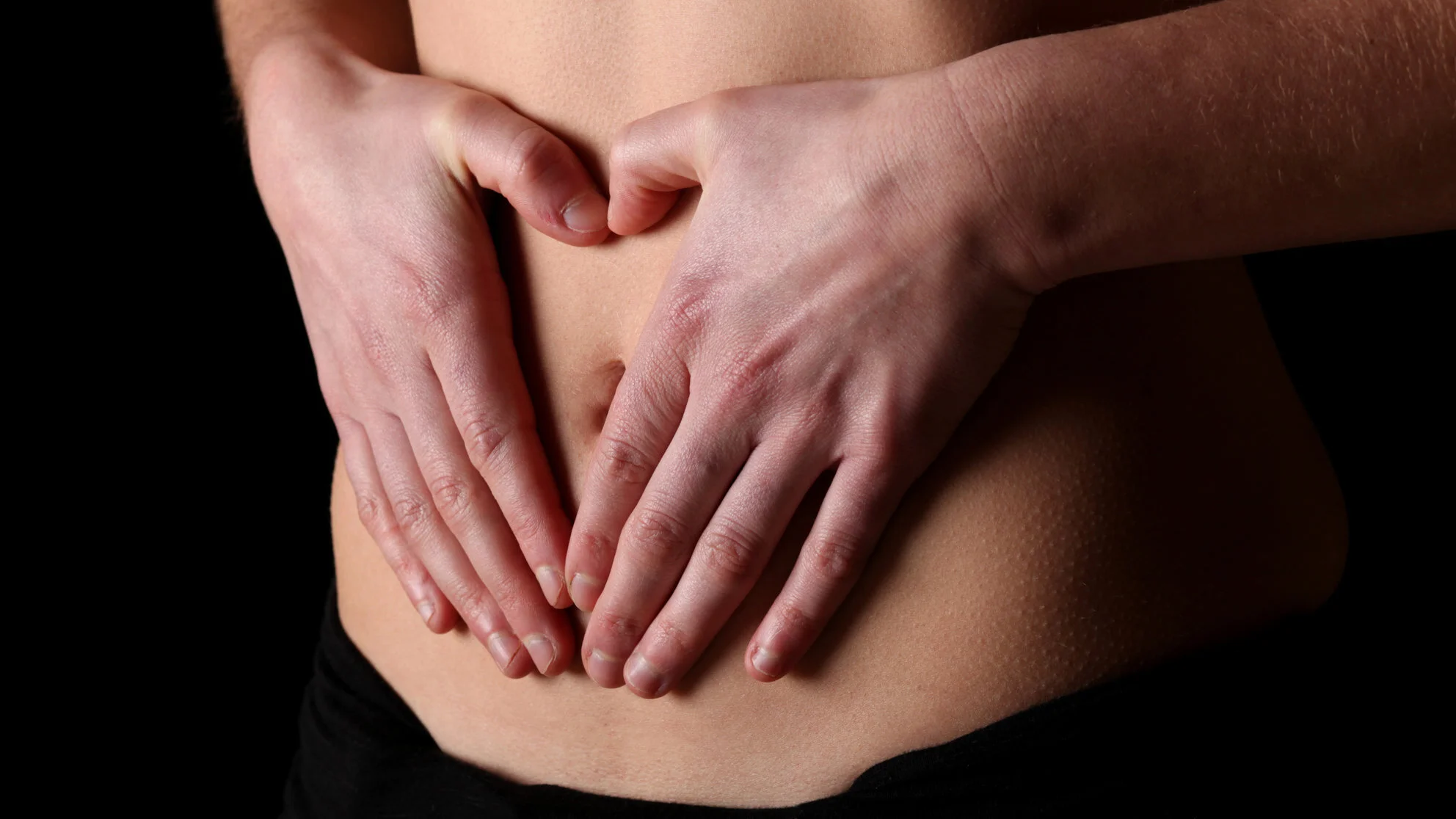Can Digestive Issues Affect Your Fertility? Part 2
In last week’s blog, we went over a connection that most women have never been told about - that your tummy troubles can be the cause of your hormone and fertility issues. If you haven’t had a chance to read it yet, click here. In that article, we briefly went over how certain digestive complaints are a tell-tale sign that we have leaky gut and also how leaky gut can be harmful to your hormones and your fertility.
There is so much research that’s come out in the last 10 years on the gut and its relation to health in general. The physiology is quite clear, and more and more studies are coming out linking many different diseases with leaky gut. So why aren’t doctors talking with their patients about this? And why are many brushing their patients off when they come in with issues like constipation or bloating or abdominal pain and telling them they just have “irritable bowel syndrome” and leaving it at that?
In integrative medicine, we are fortunate to view the body in a very holistic way. Understanding that every system in the body is intimately intertwined with every other system is at the core of how we find the root cause of what may be going on with a person. We understand that if someone is coming into us for help with their fertility, we need to ask a lot of questions about their other body systems on top of just their hormones to get a full picture of what’s going on - things like digestion, stress, sleep, energy, etc.
So, if you are trying to balance your hormones and improve your fertility, but have tummy troubles - read on. In the following paragraphs, we’ll review some of the main causes your tummy troubles could be due to, what kind of testing you may want to look into, and some nutritional and supplement digestive support.
Testing for Leaky Gut
If you have any of the symptoms we previously spoke about in Part 1 of this article - like diarrhea, constipation, sensitive stomach, bloating, gas, stomach pain - most likely, you have leaky gut. However, testing for leaky gut can be extremely helpful. The great thing about testing is that the results can help you pinpoint the cause and severity of the leaky gut. With this information, a more targeted approach for treatment can be used for faster results. Most tests for leaky gut look at three or more specific things, namely lipopolysaccharides, occludin, and zonulin. The results of these antibody tests can assess the integrity of the intestinal barrier, bacterial endotoxins, tight junction proteins, and cell cytoskeletons. The main lab I use for this analysis is Cyrex Labs Array 2. To get tested for leaky gut, you must order through a qualified healthcare professional who is aware of and understands these types of tests.
Causes of Leaky Gut
While some of our gut permeability (or, leakiness) may have a genetic factor, there are lifestyle habits that contribute as well. Too much sugar or alcohol, and not enough fiber can make things worse. Even certain compounds in foods (e.g., gluten, lectins, casein, fructose) and food additives (e.g., MSG) can weaken those tight junctions (the protective gate between cells in your gut that keeps the bad guys from getting into your bloodstream and wreaking all kinds of havoc).
So, what should we eat, and ditch, to improve our gut health and fertility?
Foods to Avoid
There are certain foods that irritate the gut or can cause those loosened junctions to get even looser.
Some of these include:
Foods that you're allergic or sensitive to (you will know by past testing or the symptoms you get when you eat them)
Foods with added sugar
Foods containing MSG
Foods with sugar alcohols (e.g., sorbitol)
Gluten-containing grains (e.g., barley, wheat, rye)
Nightshades (e.g., eggplant, peppers, tomato) (some people are more or less sensitive to this group of veggies)
Dairy (which contains casein & lactose)
Excessive alcohol
It's a good idea to reduce or avoid these foods if leaky gut is a confirmed issue for you. Most of the time, you don’t need to avoid these forever (even though you might find you feel at your best when you do). The important thing is to avoid them until the leaky gut has been addressed.
Foods to Eat More Of
There are also a bunch of foods that support gut health, hormones, and fertility. In addition, they improve the intestinal cells themselves, as well as our friendly gut microbes. Many of these also reduce inflammation.
Things like:
Probiotic-rich fermented foods (e.g., sauerkraut, kimchi)
Prebiotic fiber-rich foods which help our gut microbes produce butyrate (e.g., leafy greens, vegetables, fruit, nuts, seeds) (these types of foods help create a rich and diverse microbiome & a diverse microbiome has been positively associated with estrogen balance in the body)
Quercetin-rich foods (e.g., citrus, apples, onions) (these also help to inhibit estrogens from being metabolized down the more pathogenic 4OH E1 pathway. See my article on the DUTCH test here for more information on that)
Curcumin-rich turmeric (they have anti-inflammatory properties and can benefit your adrenal and sex hormone production)
Indole-rich foods (e.g., broccoli, cauliflower, cabbage, mustard greens) (these also have the added benefit of helping your liver to get rid of excess estrogens in the body)
These are all nutritious foods that can help with gut health and fertility.
It’s also not just what you eat that can help your gut. Other lifestyle habits can help too.
Try:
Eating slower and chewing your food for longer. When you chew properly, enzymes are released into the saliva and this help to break down food better.
Eating when hungry, and stopping when satisfied. Follow the Japanese practice of hara hachi bu, eating until you are 80% full. This will help you to not overeat and then suffer digestively after that.
Going to the bathroom when you need to (don't hold it for longer than necessary).
Getting more high-quality sleep.
Better stress management.
Supplements to Support the Gut
These are the four main categories of digestive-supporting supplements I use routinely with women who are trying to conceive with tummy troubles. Most of the time, depending on what type of issues you are experiencing, a combination of one or more is needed.
L-glutamine - L-glutamine is an amino acid that acts as food for your rapidly dividing cells in your digestive lining. Dosage is usually 3-4 grams daily. There are also many different combination products which include l-glutamine along with other important supplements to heal the gut such as DGL, aloe, marshmallow root, and slippery elm. My favorite l-glutamine combination supplement is GI Response by Innate Response & Metagenics also makes a great combination supplement.
Enzymes - Enzymes are essential for healthy digestion. There are various types of enzymes which help your body break down fats, protein, and carbohydrates among other things. There are many companies that make a full spectrum digestive enzyme combination such as Pure Encapsulation’s Digestive Enzymes Ultra. Dosage varies - some people may need to take 1 or 2 capsules with every meal initially and some may just feel that have digestive issues after lunch, for example, and will then take a dose with their lunch.
Probiotics - Probiotics are great to promote microbiome (gut) diversity. One of my favorite types of probiotics to use helps promote diversity and heal the gut at the same time - it is called Megasporebiotic by Microbiome Labs.
Short-chain fatty acids (SCFAs) - SCFAs are important to maintaining gut barrier integrity. If you have a diet low in fiber or resistant starches (foods like yams, beans, bread, and plantains/bananas, this can result in a low production of these SCFAs. SCFAs also promote microbial diversity, which promotes more balanced beta-glucuronidase activity (this is an enzyme used by your gut bacteria to help metabolize estrogen) - this, in turn, can help regulate and balance your hormones.
Conclusion
To help keep our guts (and our bodies) in optimal condition, there are a lot of foods we should eat (and lots we should reduce).
Sticking with nutrient-dense unprocessed foods is always a good plan, whether you have gut issues, other concerns, or feel completely healthy.
If you need extra support, there are several different supplements that help heal the gut lining and help create more beneficial diversity.
Are you a woman trying to get pregnant and looking for more personalized guidance and support into natural ways to increase your fertility? Book a FREE Fertility Audit call with a member of our team here.

